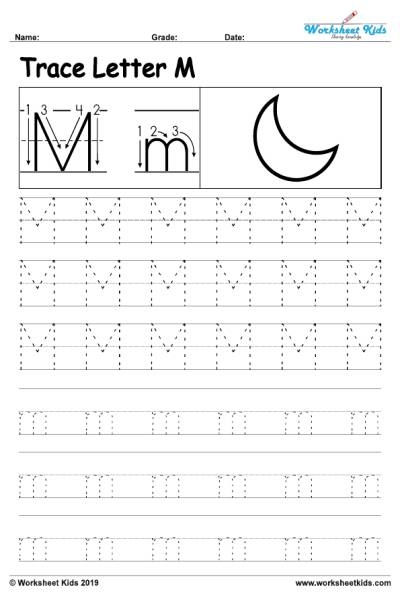Alphabet worksheets are a great way to help young children learn and practice their letters. Letter M worksheets are particularly important as they help kids recognize and write this specific letter. These worksheets can be fun and engaging, making learning a positive experience for children.
Letter M worksheets typically include activities such as tracing the letter, identifying pictures that start with the letter M, and coloring in objects that contain the letter M. These activities help children develop their fine motor skills, letter recognition, and phonics knowledge.
Benefits of Letter M Alphabet Worksheets
1. Letter Recognition: By repeatedly seeing and tracing the letter M, children become familiar with its shape and sound. This helps them recognize the letter in words and sentences.
2. Fine Motor Skills: Tracing the letter M and coloring in objects on the worksheets help children improve their hand-eye coordination and fine motor skills. This is essential for developing writing abilities.
3. Phonics Knowledge: Engaging with activities that involve identifying pictures and words starting with the letter M helps children understand the sound-letter correspondence. This is crucial for learning how to read and write.
4. Creativity and Fun: Letter M worksheets can be designed in a creative and fun way to keep children engaged. Coloring, drawing, and matching activities make learning enjoyable for kids.
5. Confidence Building: As children complete worksheets and see their progress, they gain confidence in their abilities. This positive reinforcement encourages them to continue learning and practicing.
In conclusion, letter M alphabet worksheets are a valuable resource for helping children learn and master the letter M. These worksheets offer a range of activities that promote letter recognition, fine motor skills, phonics knowledge, creativity, and confidence building. By incorporating these worksheets into early learning activities, parents and teachers can support children in their language development and literacy skills.
